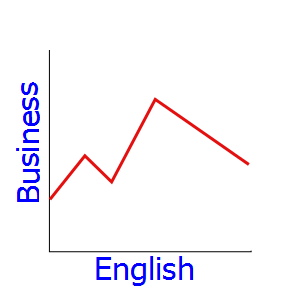
Usually I tell my students, “If you make a mistake, nobody dies.” For most people, English mistakes in a conversation don’t have significant effects and in business conversations you are probably fine. However, there are four kinds of mistakes that business people routinely make and may cost them money.
Spelling Mistakes
This should be easy to avoid. Most businesses use Microsoft Word and you can definitely install the English spelling and grammar checker, or you can ask the IT manager. The grammar checker is not always reliable but the spelling checker is very accurate. Go through each error one by one – do not click ‘Correct All’ – because the spell checker will change any names to real words.
Machine Translation
Google Translate works quite well between European languages but between European and Asian languages it is dreadful. The grammar, especially word order, is strange. This tells customers you couldn’t be bothered to try to translate your document. If you need to translate something, give the document to a company employee with a high level of English and ask them to try it. Give them at least twenty percent more time than you think they need because everyone underestimates how much time translation takes. If they are not a confident translator then you should hire a professional. It is not cheap but that is the cost of doing business.
Lack of Proofreading
You must proofread documents. Check they make sense to your readership. Depending on the type of document, you may need to have a high level of accuracy; contracts ought to be 100% accurate but short emails may have grammar and spelling mistakes as long as they can be understood and they are not the first contact with your customer. If you don’t have the confidence to proofread your own documents, consult a professional. (I also offer this service – email me for details).
Unclear Vocabulary
Nobody expects a non-native speaker to be 100% proficient in their conversation all of the time. However, people expect presentations and speeches to contain the correct vocabulary and to communicate effectively. If there is a word you need to use in a presentation or speech that you need to check in a bilingual dictionary ensure you also check it in a monolingual English dictionary. If you still don’t know how to use the word, try a different word that you do know how to use or change Google’s language settings to English and search for examples of the word in real sentences by native speakers. Then, input your sentence into Google and if there are a high number of results it is probably correct. If you aren’t sure, hire a proofreader, such as me.
If you follow these steps you should limit your mistakes to only the trivial ones that rarely matter. Remember to proofread everything and if you are unsure of your proofreading, ask a professional.
